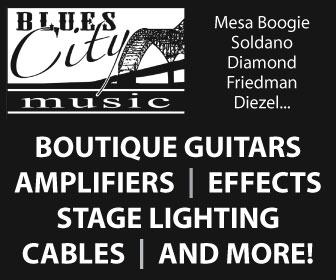Bobby Strange
Chorus and Verse Spotlight
Bobby Strange has long been recognized as one of New Jersey's most viable singer/songwriters. His name is consistently included in local promotional ads and fliers due to his participation in numerous shows around the state. The reason for his constant bookings is simple: he entertains and enlightens his audiences.
Strange brings to the stage down-to-earth songs laced with social statements and humorous anecdotes. His lyrics are a bare representation of his personality, never quite saying too much. They only express a representation of his emotional state while writing them. Strange's performances remind fans of other Jersey greats, who were given a rare ability to change their audience's state of mind before exiting the stage. Strange achieves this by musically conveying a vast array of feelings, which are as pertinent to the song as its lyrics.
Strange has a certain sensitiveness in his voice that reinforces the heartfelt meaning behind the music. His vocals are delivered with the poise only a seasoned veteran of the stage can posses. His songs are reflections of true-to-life experiences. He makes his point strongly, without forcing it on the audience.
Strange's songs leave room for the listener to pause and reflect upon how the song's character handles the situation with which they're presented. This gives the audience the opportunity to decide how the song applies to them and a little insight into Strange's thinking. His message is sometimes harsh, other times positive, but always clear and well thought out.
Strange has a spontaneity that attracts and holds his audience's attention. He will speak to them on the spot, sharing stories of his life. Once he hits the stage, what happens next is difficult to predict. This, according to Strange, keeps people involved and interested in his music. Once he reels them in, his music doesn't let them go.
Which did you start first: playing guitar, singing or writing songs? How did you get started at each?
I started playing guitar first, at about five years old. My eldest brother began giving me lessons. Singing and writing songs came much later. I guess I was about 15 when I started singing, and songwriting was really difficult. I always knew I wanted to be a songwriter, but I did not write a decent song 'til I was in my late twenties.
Then, in a couple of years, I wrote about a hundred songs. I guess it was a penned up release.
How long did it take you to start playing out and where did you play?
The first time I played out, I was fifteen. It was a C.Y.O. overnight dance marathon for M.S. Father Bob made us stop playing because we were too loud. After that, I played at, like, every school dance and assembly I could.
How would you compare your performance level from your early days until now? How has your songwriting grown?
Early on, I hadn't seen too many other live shows except for on T.V. So when we would play, it was pretty wild. I was trying real hard to be Pete Townshend. Without the talent, of course.
As I got older and began to see really great live local performers, I started to learn it took a lot more than just looking cool on stage. So, I started practicing real hard. Hopefully, I've become a little better.
I think the songwriting has become better simply due to experience. The more you do it, the more you know when a song is really going nowhere. I think it's more difficult for me to judge when one of my own songs is really good, but I do know when they really suck!
You establish a closeness to your audience when on stage. Is this something that comes naturally or did you work on it over the years? Is there anything you specifically do to keep them interested?
I think my closeness to my audience started as a defense mechanism. Early on, when I was less confident about my performance, I would fool around a lot with the audience. I figured, if I made them laugh at first, they would not be quite as critical of my performance.
I just try to be as goofy as I can. If they laugh at me they usually enjoy my music. Sort of like that old Danish guy who used to fall off his piano stool. I forget his name. It seems that if you fool around and then you show that you can actually play some good songs people are more impressed. I call this the Harlem Globetrotter syndrome.
What is the most important aspect to a good song? How do you bring this aspect into your music?
The most important thing a song must do, is touch a person in some emotional way. I guess I try to keep my songs simple and real. I write about common denominator things that anyone can relate to. I'm not a rocket scientist and I don't write for them. I write about daily stuff that affects me. I'm "fairly" normal, so I figure stuff that effects me probably affects the average shmo on the street.
Do you have any methods for developing good melodies in your music or do those come about on their own?
If I work on a song, I'll walk away from the piano or guitar for an hour or so. If I can't remember the melody well enough to whistle it an hour later, then it's not memorable enough to make a good song.
A good song is one people can remember. That is my best definition.
Is creating a good melody as important as expressing yourself emotionally to your listener?
I like to think that, from years of experience, I am a good judge of a "catchy melody." I think expressing the emotion you are trying to convey is most important, but a good songwriter can do that without sacrificing the melody.
Simply put, if you can get across the emotion by using a great melody you've got yourself one heck of a career. There are times when you can really express yourself with a great lyric or a great groove without a great melody, but I think it's more of rare case.
How much do you experiment with an original song idea, in order to enhance it, before it becomes the actual song?
I'm working on a new CD as we speak, and I experiment sometimes for weeks before I find the right sound for a song. I just keep trying different things, until the production fits the song. You kind of just know when you hit on it!
It's a magical moment when the song finds the right arrangement. I think it was Yogi Berra who once said, "A great arrangement makes a good song great, a good arrangement makes a great song great, but a good arrangement can't save a lousy song and a lousy arrangement can ruin a really good song!"
What type of gear do you normally use when recording and playing out? How does this attribute to your sound?
I have my own home studio. It's old analog stuff, eight-track reel to reel. I do everything in real time. I call it reel to reel real. It's a 1987 Teac 388. A couple of compressors, an old Yamaha spx90 for effects, mostly reverb, and a cheesy Sampson monitor system. It makes everything sound nice and raw. Which is just how I like it.
On the road, I travel with a Trace Elliot little amp. One plug for the guitar, one plug for the mic and only 18 pounds for me to carry! If you play in the city where you have to park a mile from the club, you can carry everything in one trip. And the stuff sounds great. Has built-in effects and enough power to play just about any room.
I always get a kick out of musicians that bring in 20,000 dollars worth of equipment and sound like poop. It ain't the meat, it's the motion!
What do you have planned for the upcoming year?
My plans for the year are to get this CD finished. After that, I plan on touring extensively anywhere and everywhere people will have me.
Oh yeah, and I'm getting married to the most incredible girl in the world! It should be a pretty good year!

Josh Davidson has written music feature articles for Jersey Style and served as the Jersey Shore rock columnist for Steppin' Out Magazine. Other music writing credits include Aquarian Weekly, Jersey Beat, Backstreets and njcoast.com. He has written free-lance for the Asbury Park Press' Community Sports section and has written featured articles for its news section, as well as covering campus news and sports weekly for the Signal, the College of New Jersey's (formerly Trenton State College) student newspaper. He has worked as a staff writer for The Independent, and his work for Greater Media Newspapers has also been published in the News Transcript. He is a former beat reporter for the Ocean County Observer who presently is a news writer for Symbolic Systems Inc. supporting the US Army's Knowledge Center. His music writing covers a vast range of topics, from the current cover band craze, highs and lows of the original scene, to the early days of the Jersey Shore rock scene in Asbury Park. He is also a musician, having written hundreds of songs as a singer/songwriter, and playing them out as a solo/acoustic artist. He has also played with cover bands, including It Doesn't Matter, and several original bands, including as the guitarist for the solo project of singer/songwriter Dave Eric. He continues to work on solo material and is presently the guitar player for Jersey Breeze.









